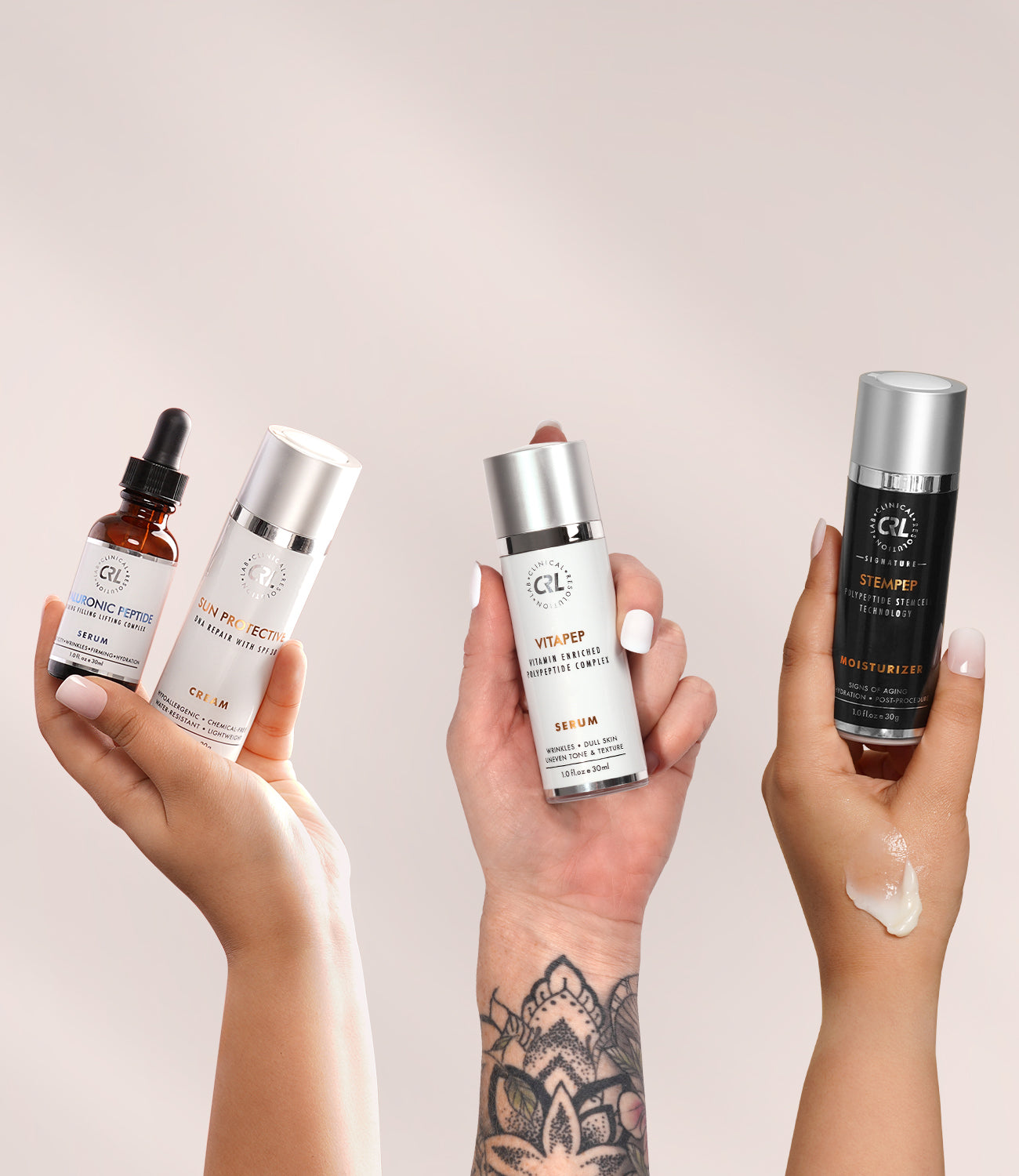
Sensitive skin is a real skin type that affects how your skin reacts to products, the environment, and even stress. There is ~60–70% of women and 50–60% of men who report having some degree of sensitive skin, according to the National Library of Medicine. But how do you know if you truly have sensitive skin or are just experiencing a temporary reaction?
Here’s how to tell if your skin is trying to send you a sensitive signal:
1. You Frequently Experience Redness
Redness is one of the most common indicators of sensitive skin. It can show up as blotchy patches, flushing, or visible blood vessels, especially around the nose and cheeks.
Try calming your skin with our Advanced 247 Repair Serum, formulated to support stressed and sensitive skin.
2. Products Often Sting or Burn
If skincare products make your skin sting, burn, or tingle even when they’re labeled “gentle” that’s a red flag. This is your skin reacting to specific ingredients, fragrances, or preservatives.
3. Your Skin Feels Tight or Itchy
A tight, dry, or itchy feeling after washing your face or applying products may mean your skin barrier is compromised, a hallmark of sensitive skin.
Nourish your barrier with the Ultimate Vita B35 Serum, rich in panthenol and niacinamide to soothe and restore.
4. You're Prone to Breakouts or Rashes
Sensitive skin tends to overreact. If you frequently notice small bumps, rashes, or breakouts (especially after trying new products), it may be your skin responding to irritants, not acne..
5. Weather Changes Affect You More
Cold, dry air or hot, humid climates can intensify symptoms of sensitive skin. If your skin becomes more flaky, itchy, or reactive with the seasons, this might be a sign.
Lock in hydration with the StemPep Moisturizer, a peptide-rich formula for resilient skin.
6. You React to Fragrances and Dyes
Synthetic fragrances and dyes are common irritants. If your skin flares up after using scented skincare, body wash, or even laundry detergent, it’s time to switch.
7. You’ve Had a Skin Condition Like Eczema or Rosacea
If you’ve been diagnosed with eczema, rosacea, or contact dermatitis, you likely already know your skin is sensitive. These conditions compromise the skin barrier and heighten reactivity.
How to Care for Sensitive Skin
Keep your routine simple: Fewer ingredients = fewer chances for irritation.
Patch test new products: Always test on a small area before full use.
Use fragrance-free, hypoallergenic formulas: These are less likely to trigger reactions.
Moisturize regularly: A healthy barrier means calmer, more resilient skin.
Wear sunscreen daily: Sensitive skin is extra vulnerable to UV damage.
Final Thoughts
Sensitive skin isn’t a flaw, it just needs a little extra care and attention. By learning your triggers and choosing the right products, you can calm, protect, and strengthen your skin over time.
Explore our Sensitive Skin Collection to find gentle, effective skincare designed to work with, not against, your skin.



